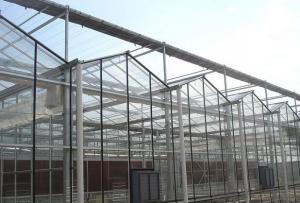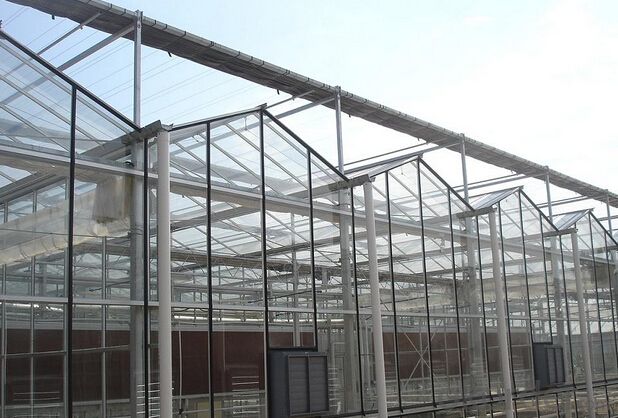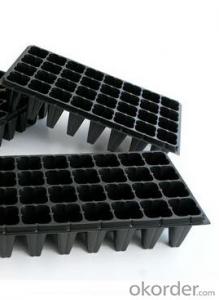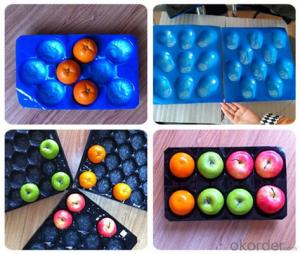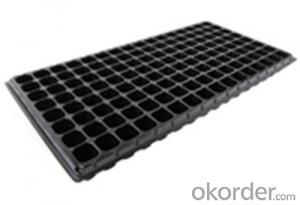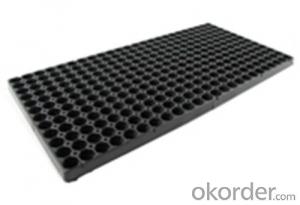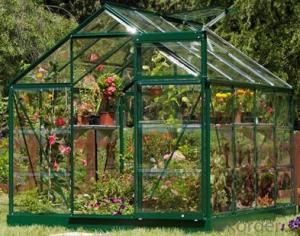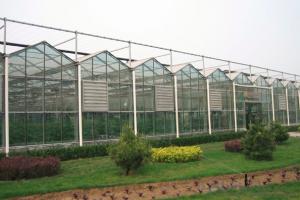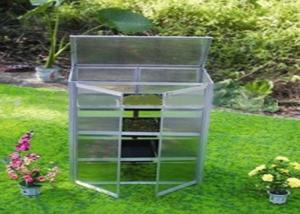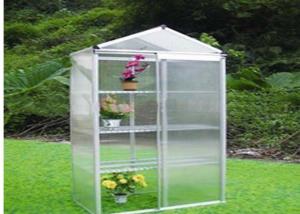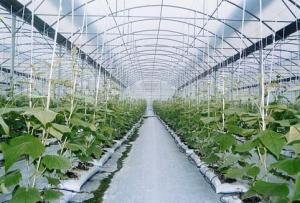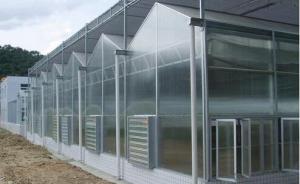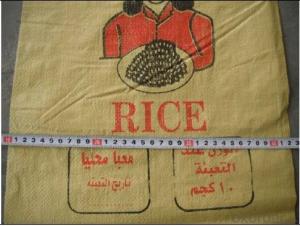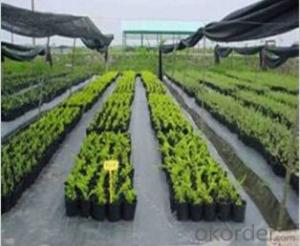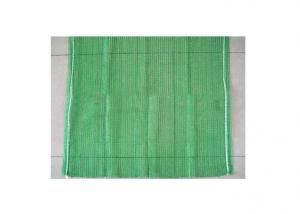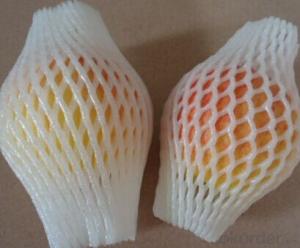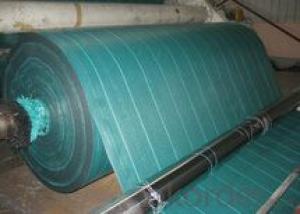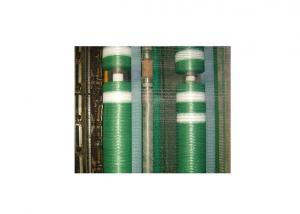Commercial polycarbonate garden greenhouse
- Loading Port:
- Shanghai
- Payment Terms:
- TT OR LC
- Min Order Qty:
- 10 set
- Supply Capability:
- 1000 set/month
OKorder Service Pledge
OKorder Financial Service
You Might Also Like
Product Parameter:
Polycarbonate greenhouse PC8000/9600Venlo
-Commercial Greenhouses - agricultural greenhouse for flower/vegetable
1.Feature:
Good heat retention, high intensity, easy assembly, energy saving, anti dew, strong impact resistance and long service life, etc
2.Structural Characteristics:
Venlo structure or A shape structure
span: 8m/9.6M/12M, bay size: 3.2M/ 4M, section :4M/ 4.5M;
Gutter: 3-5.5M
The frame works structure is assembled by prefabricated parts. All main parts are hot dipping galvanized after processing with zinc cover 275G/M2 in order to avoid any rust;
Cover: 8mm polycarbonate panel, by special aluminum profiles together with sealed band
Ventilation: single roof vents or double roof vents, controlled by rack and pinion system
Aluminum sliding doors;
- Q: How does agricultural plastic affect temperature and moisture control?
- Agricultural plastic can have both positive and negative effects on temperature and moisture control in farming. On one hand, plastic mulches, covers, and tunnels can help regulate temperature by trapping heat, creating a warmer microclimate that benefits crop growth. These plastics also reduce evaporation, thus conserving moisture and promoting better water management. On the other hand, improper disposal of agricultural plastics can lead to environmental issues, including increased temperatures in landfills and reduced soil moisture retention due to plastic's impermeability. Therefore, while agricultural plastic can have a beneficial impact on temperature and moisture control when used appropriately, it is crucial to consider its proper management to mitigate any negative consequences.
- Q: What are the best ground cover plants for acidic soil?
- Some of the best ground cover plants for acidic soil include moss, creeping thyme, heather, blueberry bushes, and ferns.
- Q: Are agricultural plastic products safe for aquatic life?
- Agricultural plastic products can pose risks to aquatic life if not properly managed. Plastic waste, such as mulch film or irrigation tubing, can end up in water bodies and cause harm to marine organisms. It is crucial to ensure proper disposal and recycling of agricultural plastics to mitigate these potential risks and protect aquatic ecosystems.
- Q: Are there any educational resources available on agricultural plastic products?
- Yes, there are several educational resources available on agricultural plastic products. These resources provide information on the use, benefits, and environmental impacts of plastic in agriculture. They also discuss proper disposal and recycling methods for agricultural plastics. Some of these resources include online articles, research papers, webinars, and educational videos provided by agricultural organizations, universities, and government agencies.
- Q: How does ground cover impact soil health?
- Ground cover has a significant impact on soil health as it helps to protect the soil from erosion, retain moisture, and control weed growth. Additionally, ground cover provides organic matter to the soil through leaf litter and root systems, improving its fertility and structure. It also promotes beneficial microbial activity and reduces the need for synthetic fertilizers and pesticides, thus enhancing overall soil health.
- Q: Do nursery trays come with a watering tray?
- Yes, nursery trays often come with a watering tray.
- Q: Can agricultural plastic products be used for vermicomposting?
- Yes, agricultural plastic products can be used for vermicomposting, but it is important to choose the right type of plastic. Some agricultural plastics, such as biodegradable or compostable plastic mulch films, can break down during the vermicomposting process. However, other types of plastics, such as traditional plastic mulch films or plastic containers, are not suitable for vermicomposting as they do not readily decompose and can harm the worms.
- Q: Are nursery trays suitable for starting bonsai trees?
- No, nursery trays are not suitable for starting bonsai trees. Bonsai trees require specific conditions and care, including adequate drainage and space for root development, which nursery trays may not provide. It is recommended to use specialized bonsai pots or containers that allow for proper growth and development of the tree.
- Q: What are some ground cover options for slopes prone to landslides?
- Some ground cover options for slopes prone to landslides include grasses like creeping red fescue or buffalo grass, as well as erosion control blankets or mats made of coconut fibers or jute. Planting shrubs with deep root systems, such as juniper or lavender, can also help stabilize the soil on slopes.
- Q: Are agricultural plastic products used in livestock farming?
- Yes, agricultural plastic products are commonly used in livestock farming for various purposes such as storing feed, covering silage, constructing shelters, and handling manure.
Send your message to us
Commercial polycarbonate garden greenhouse
- Loading Port:
- Shanghai
- Payment Terms:
- TT OR LC
- Min Order Qty:
- 10 set
- Supply Capability:
- 1000 set/month
OKorder Service Pledge
OKorder Financial Service
Similar products
Hot products
Hot Searches
Related keywords
